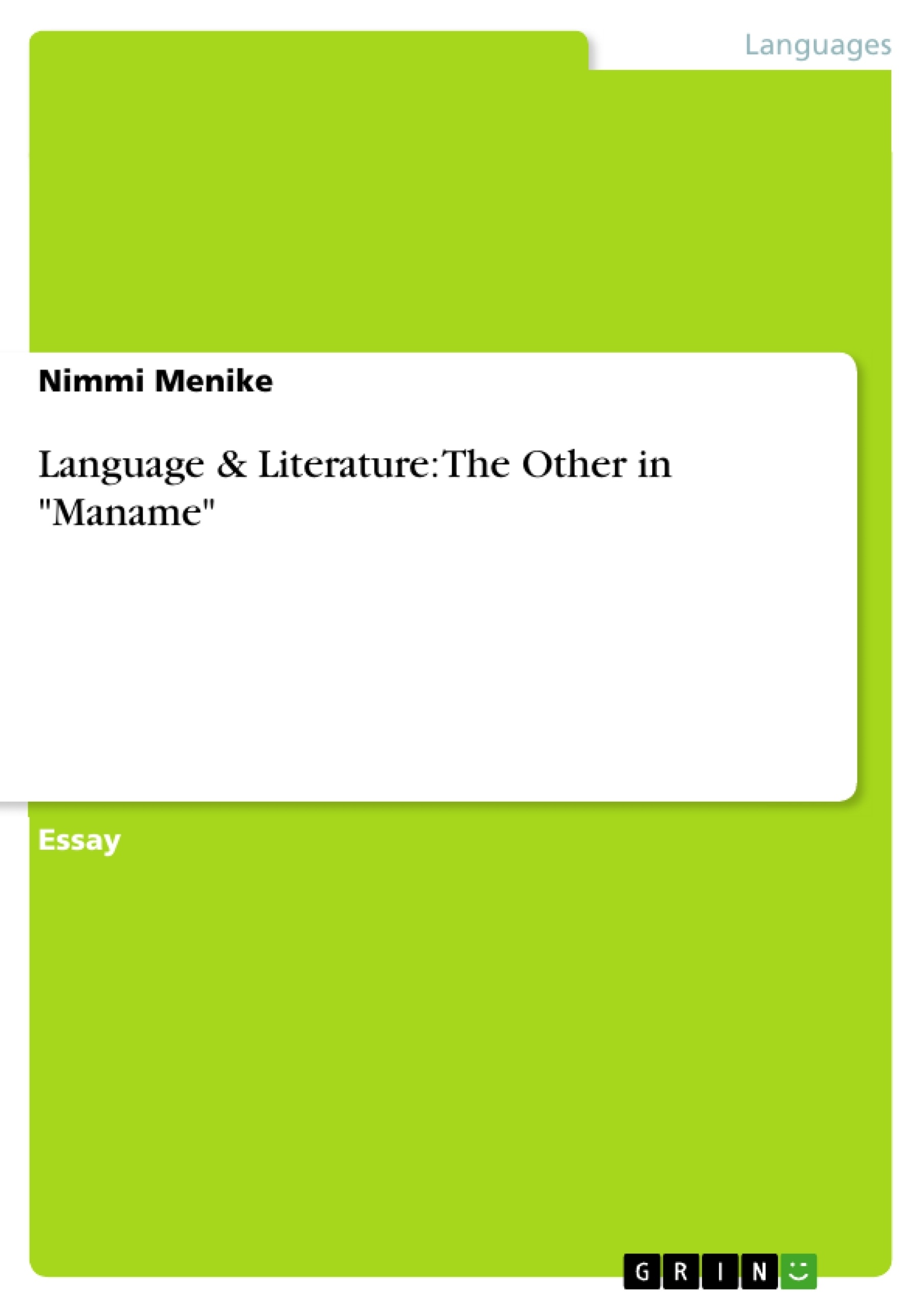The intention of the paper is to discuss the ‘space of literature’ as the space of the other taking the ideas of Derrida, Levinas, Blanchot, and Deleuze into account. Accordingly, the paper would consider literature as fictive institution which appears in and through writing through language. This would be analyzed through a Sinhala play ‘Maname’ written by Ediriweera Sarachchandra.
Inhaltsverzeichnis (Table of Contents)
- Abstract
- The Space of Literature
- Literature as Fictive Institution
- The Freedom to Say Everything
- The Appeal of the Other
- The Power of Literature and Language
- Literature and the Other: 'Maname'
- The Princess's Appeal
- Literature and the Interminable
- Literature as a World of Individuality
- 'Maname'
Zielsetzung und Themenschwerpunkte (Objectives and Key Themes)
This paper explores the concept of 'literature as the space of the other,' drawing on the ideas of Derrida, Levinas, Blanchot, and Deleuze. It examines how literature, as a fictive institution, allows for the infinite appearance of the other through writing, challenging traditional notions of representation and power dynamics. The paper uses the Sinhala play 'Maname' by Ediriweera Sarachchandra to analyze the themes of responsibility, powerlessness, and the encounter with the other.
- Literature as the Space of the Other
- Fictive Institution and the Freedom to Say Everything
- The Role of Language and Power in Literature
- The Appeal of the Other and Responsibility
- The Interminable and the World of Individuality in Literature
Zusammenfassung der Kapitel (Chapter Summaries)
The paper begins by defining the 'space of literature' as a space for the other, arguing that literature is not a representation of reality but a fictive institution that allows for the expression of the other through writing. Derrida's concept of 'freedom to say everything' is explored, emphasizing that this freedom does not equate to power over the world but rather the freedom to appear as a force that appeals to the other. The paper then examines Levinas's philosophy of responsibility, arguing that the encounter with the other in literature evokes a sense of responsibility that arises from the other's appeal.
The play 'Maname' is used as a case study to illustrate these concepts. The princess's appeal to the prince not to kill the vedda is analyzed as a moment where she encounters the other's powerlessness and responds with a sense of responsibility. The paper concludes by exploring Blanchot's concept of 'the interminable' in literature, arguing that writing allows for the creation of a world where individuality and the other can exist outside of conventional order and power structures.
Schlüsselwörter (Keywords)
The paper examines the themes of literature, the other, fictive institution, freedom, responsibility, power, language, writing, representation, the interminable, and the individual. It analyzes the play 'Maname' by Ediriweera Sarachchandra as a case study for exploring these concepts. The authors referenced include Derrida, Levinas, Blanchot, and Deleuze.
Frequently Asked Questions
What is meant by 'literature as the space of the other'?
It refers to the idea that literature is a fictive institution where the 'other'—voices or perspectives outside traditional representation—can appear through language and writing.
How does Derrida's 'freedom to say everything' apply to literature?
Derrida suggests that literature has a unique status as a fictive institution that allows for the expression of anything, bypassing conventional censorship and power structures.
What is the significance of the play 'Maname' in this study?
The Sinhala play 'Maname' serves as a case study to analyze encounters with the other, responsibility, and the powerlessness of the individual within a literary world.
How does Levinas's philosophy influence the understanding of literature?
Levinas's focus on the appeal of the other and the ethical responsibility of the self is used to explain the dynamic between characters and readers in the literary space.
What is Blanchot's concept of 'the interminable'?
Blanchot views writing as an endless, 'interminable' process where the author loses control, allowing the work to exist as a space of pure individuality and otherness.
- Quote paper
- Nimmi Menike (Author), 2011, Language & Literature: The Other in "Maname", Munich, GRIN Verlag, https://www.grin.com/document/288549



